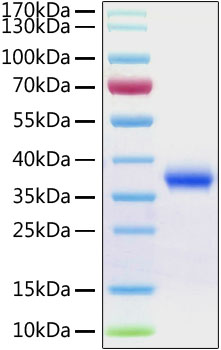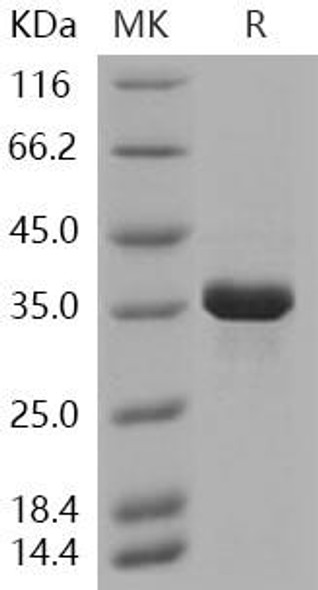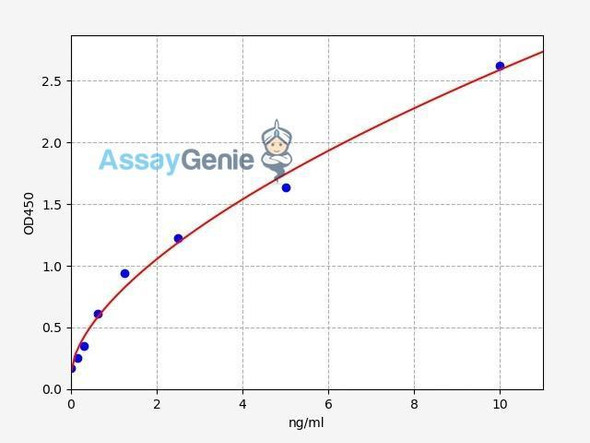Description
Recombinant Human Aldehyde reductase/AKR1B1 Protein
The Recombinant Human Aldehyde reductase/AKR1B1 Protein is a biologically active recombinant protein that plays a significant role in various cellular processes and signaling pathways in human biology. This protein is widely employed in immunological research, cell biology studies, protein-protein interaction analyses, and therapeutic development, providing researchers with a reliable tool for investigating Aldehyde reductase/AKR1B1 function and its implications in health and disease.
This product (SKU: RPCB1858) is produced using E. coli and features a N-His tag for convenient detection and purification. The protein exhibits a calculated molecular weight of 37.9 kDa with an observed molecular weight of 36 kDa under denaturing conditions, achieving ≥ 90 % as determined by SDS-PAGE., ensuring exceptional quality and consistency for research applications.
Key Features
| High Purity by Affinity Chromatography | |
| Mammalian & Bacterial Expression Systems | |
| High lot-to-lot consistency via strict QC |
| Product Name: | Recombinant Human Aldehyde reductase/AKR1B1 Protein |
| SKU: | RPCB1858 |
| Size: | 100 μg |
| Reactivity: | Human |
| Synonyms: | AKR1B1, ADR, ALDR1, ALR2, AR, aldose reductase, ADR, ALDR1, ALR2, AR |
| Tag: | N-His |
| Expression Host: | E. coli |
| Calculated MW: | 37.9 kDa |
| Observed MW: | 36 kDa |
| Gene ID: | 231 |
| Protein Description: | High quality, high purity and low endotoxin recombinant Recombinant Human Aldehyde reductase/AKR1B1 Protein (RPCB1858), tested reactivity in E. coli and has been validated in SDS-PAGE.100% guaranteed. |
| Endotoxin: | Please contact us for more information. |
| Purity: | ≥ 90 % as determined by SDS-PAGE. |
| Formulation: | Lyophilized from a 0.22 μm filtered solution of PBS, 20% glycerol, pH 7.5. |
| Reconstitution: | Centrifuge the vial before opening. Reconstitute to a concentration of 0.1-0.5 mg/mL in sterile distilled water. Avoid vortex or vigorously pipetting the protein. For long term storage, it is recommended to add a carrier protein or stablizer (e.g. 0.1% BSA, 5% HSA, 10% FBS or 5% Trehalose), and aliquot the reconstituted protein solution to minimize free-thaw cycles. |
| Storage: | Store at -20℃.Store the lyophilized protein at -20℃ to -80 ℃ up to 1 year from the date of receipt. After reconstitution, the protein solution is stable at -20℃ for 3 months, at 2-8℃ for up to 1 week. |
Aldose reductase (AKR1B1) belongs to the aldo/keto reductase superfamily. AKR1B1 is a NADPH-dependent aldo-keto reductase best known as the rate-limiting enzyme of the polyol pathway. Expression of AKR1B1 was the highest in lens and retina. It is the first enzyme in the polyol pathway through which glucose is converted to sorbitol which is important for the function of various organs in the body, and has been implicated in the etiology of diabetic complications. AKR1B1 is quite abundant in the collecting tubule cells and thought to provide protection against hypertonic environment. Some human tissues contain AKR1B1 as well as AKR1B10, a closely related member of the aldo-keto reductase superfamily.







